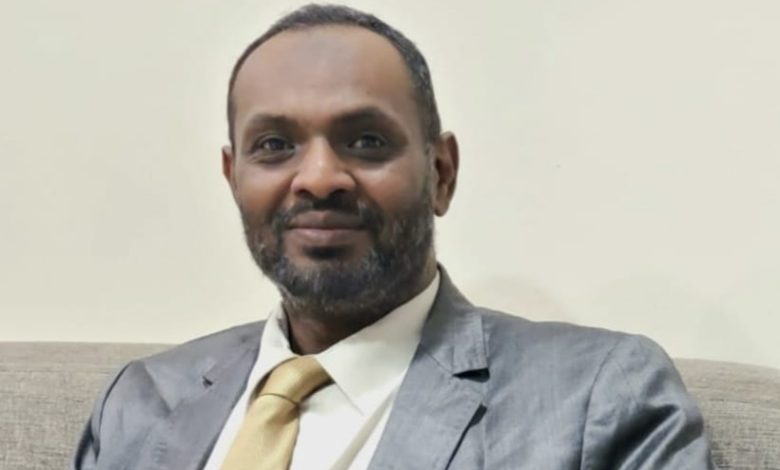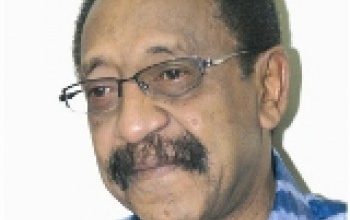Opinion
Qahat/Taqaddum Strikes at the Army to Support the Militia

Dr. Mohamed Othman Awadallah
The echoes of the army’s victories and the surrender of Keikil were earth-shattering within the Qahat/Taqaddum Coordination. This was evident in the frenzied efforts of its leaders to muddy the waters. In the past two days, Hamdok delivered a speech, Rasha Awad wrote an article and four posts, Faisal Mohamed Saleh gave an interview, and other leaders and activists of Qahat/Taqaddum were active in the media—all aimed at discrediting the army’s achievements in Keikil’s surrender. The leadership of Taqaddum looked at this significant event solely through the narrow lens of their partisan struggles, dividing the people into “Kizan” (Islamists) and non-Kizan, spreading hateful rhetoric in an attempt to bend the army to their will.
Rasha Awad attributed all information regarding the army’s achievements and victories to the Kizan, even calling them “Kizan leaks.” This partisan view is not just her personal stance but part of a broader campaign and method Qahat/Taqaddum has adopted since its inception, receiving salaries and funding for their activities from American and European organizations, as they have admitted. Thus, this effort is part of the job description for which they are paid. The core of this approach is: “Strike the army to support the militia,” “Strike the army while pretending neutrality.” Worse still, some Taqaddum leaders even urged the army to surrender, claiming the militia outmatches them (in the field of committing crimes), and the official spokesman of Taqaddum called for the army’s surrender (likening it to Japan’s surrender in the past).
Through these efforts, these leaders believed they could dampen the public’s joy at the army’s victories. They used every tactic available to attack the army and belittle its victories, primarily by portraying the army as a partisan entity rather than a national one. Since the army is a key pillar of the state representing all the people, it carries the duty of defending them. It is clear to everyone how Qahat/Taqaddum, through its methods, supports the militia while undermining the army.
These leaders sought to downplay the army’s victory with the surrender of one of the militia’s most significant leaders, Keikil. Rasha Awad denied that this major event was a surrender, defeat, or capture, instead labeling it as simply an “integration into the army.” She tried to blur public opinion by suggesting that Keikil’s “integration” was merely a transfer from the ranks of the militia to the army. She even mocked it further, calling it a “monkey game” and a “Mexican film” to intensify her criticism.
Why are Rasha, Hamdok, and all of Taqaddum working so hard to belittle the army’s victories? What troubles them deeply is that the army refuses to negotiate with the militia except according to the Jeddah Agreement. They wish to return to power through negotiations, under the guise of transferring authority to civilian forces. Therefore, Rasha Awad twisted logic, suggesting that if the army negotiated with Keikil, why not negotiate with Hemedti and the militia as well? We are free to ask and seek answers objectively. But Rasha’s goal was to sow confusion. She resorted to emotional manipulation with statements like: “There is complete silence on matters of honor for the women and vengeance for the martyrs of Wad Al-Noora. No more slogans about ‘no place among us for the criminal Janjaweed, even if they cling to the Kaaba.’” This was all she had to say about the army’s victories and Keikil’s surrender.
Let’s start with this question: Did Hemedti and his mercenaries offer to surrender according to the army’s terms, as Keikil did, only to be rejected by the army? Did Hemedti offer to surrender and benefit from the general amnesty issued by the army’s leader, and was he refused by Al-Burhan? In fact, did Rasha Awad or Hamdok attempt to mediate for Hemedti and his forces to surrender under the army’s terms, only to have the army refuse?
The first truth is that the army negotiated with Hemedti, reached an agreement, and signed the Jeddah Agreement, which Hemedti later broke. The second truth is that both Hemedti and Keikil attacked villages and committed crimes, and the army repelled and defeated them both. However, Keikil chose to surrender on the army’s terms, while Hemedti refused, and the army continues to pursue his mercenary forces and achieve victories over them. Rasha Awad wants the army to reject Keikil’s surrender, telling him, “Since Hemedti has refused to implement the Jeddah Agreement and surrender, go and fight with him. Do not come seeking peace or stopping your crimes until he does too.” There is no valid comparison between the two men’s positions, despite Rasha Awad’s efforts to twist the truth.
In fulfilling her job duties, Rasha called this victory a “Mexican film,” and exposed her position further by saying, “This is merely a conflict devoid of any national or moral principle, with the sole compass being the interests of these warring factions. This is not a national war.” This is the statement of someone determined to run into the solid wall of truth with stubbornness, hoping to profit from the wounds and pains of their people, indifferent to them. But in reality, they have drained their standing, exchanging the duty of defending their people for dollars and plane tickets.
The amusing part of her article is when she describes herself and her group as follows: “As for those with clean hands, unstained by blood or theft, who have not violated anyone’s rights, when they raise the flag of peace and negotiation to stop this accursed war, they are accused by the Interpol of being war criminals.” The clear response to this claim doesn’t come only from Al-Burhan, the attorney general, or hundreds of thousands of mobilized supporters, but from the Sudanese communities worldwide, from Paris and Geneva to Alexandria and Cairo. Rasha Awad must explain why Hamdok, supposedly so “pure,” could not meet the Sudanese community in Paris after the donor conference. Let alone holding an open lecture or seminar in any city of their choosing, inside or outside Sudan, on any topic, as long as it is open to the public!



